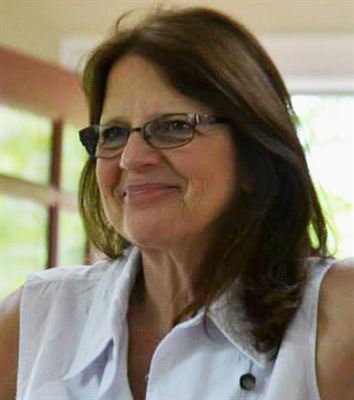COVD Recognizes March is Brain Injury Awareness Month: Missing Link to the Rehabilitation Process

One of the biggest challenges brain injury survivors face is recovering enough to return to work or school. Brain injuries impact people from all walks and stages of life. Some recover quickly and others take years. Optometric vision therapy can make all the difference.
“Vision problems can interfere with the recovery process. Unfortunately many people who have vision problems resulting from head trauma don’t always realize that part of their symptoms are due to a vision problem. In addition, some people are mistakenly told that nothing can be done to help with their symptoms,” shares Dr. Ida Chung, OD, FCOVD, President of the College of Optometrists in Vision Development, “Our message is that help is possible, something CAN be done. In fact, the sooner vision problems are diagnosed and treated the faster the overall recovery. ”
Maryann, of Newmarket, New Hampshire, suffered a ruptured brain aneurysm.“I felt a pop and then a warm sensation on the right side of my head, followed by the worst headache of my life,” Maryann describes the event, “I had 2 emergency brain surgeries and then spent 2 weeks at Mass General Hospital. When I came home I was very weak, had bad headaches and serious vision issues.”
Her right eye remained closed after the two surgeries for 2 months. The position of her right eyeball was now higher than the left and turned out to the side. She could not keep both eyes open due to serious double vision. She had no depth perception and a serious lack of balance. In order to walk she had to hold someone’s hand.
As the District Technology Coordinator for a large school district she was responsible for everything IT. She also had a side business where she provided IT consulting services for school districts, municipalities, and small businesses. After the aneurysm, she couldn't look at a computer screen or a TV which made it impossible to go back to work.
At 2 months post-surgery, she started PT, OT, and office-based optometric vision therapy. The results of the neuro-developmental vision evaluation determined she could only see clearly in the upper right quadrant of her field of vision and a treatment plan was designed to help her with the double vision, lack of balance, and lack of depth perception. The plan included lenses with prisms and a program of optometric vision therapy. Maryann shares that, “Because of optometric vision therapy I was able to regain my life!”
“I was extremely driven to get my life back and vision therapy was instrumental in making that happen,” shares Maryann, “Physically I recovered quite well and quite quickly, but my eyes were really a challenge. The neurosurgeon said it would be my biggest challenge. He was right. His original comment to me was, ‘You'll just have to wear a patch for a while.’ Turns out that couldn't have been further from the truth AND I never wore a patch because, as I learned, that doesn't help your eyes to team, which is what I needed.”
Only 2 months after starting optometric vision therapy, Maryann drove her car for the first time. She returned to work half time nine months later and full time within the year. Maryann’s advice to other brain injury survivors, “Don’t ever let anyone tell you, you won’t OR you can’t. Because, you will and you can! Think positively!”
Maryann was fortunate to have vision therapy included so early in her rehabilitation program. Many survivors continue struggling for years because the visual component of their injury has not been properly addressed.
To increase awareness that March is Brain Injury Awareness Month; the College of Optometrists in Vision Development is supporting a hashtag party from March15th through March 22nd. The goal for the party is to increase awareness regarding the visual impact that follows after head injury and how to address it. Important information will also be shared regarding a simple sidelines test that can help minimize the damage from concussions in sports.” To join the conversation, use the combination of #concussions and #visiontherapy, or the combination of #braininjury and #visiontherapy.
Dr. Chung states, “We are inviting all allied health professionals, as well as survivors and their caregivers to attend this hashtag party. We hope you can join us.”
If you are interested in sharing your success story with optometric vision therapy contact the COVD International Office to provide us with more information. We would love to hear from you.
CONTACT: Pamela R. Happ, MSM, CAE
COVD Executive Director
330.995.0718 tel
Email: mailto:phapp@covd.org
Website: www.covd.org
About COVD
The College of Optometrists in Vision Development (COVD) is an international, non-profit optometric membership organization that provides education, evaluation, and board certification programs in behavioral and developmental vision care, vision therapy, and visual rehabilitation. The organization is comprised of doctors of optometry, vision therapists and other vision specialists. For more information on learning-related vision problems, vision therapy and COVD, please visit http://www.covd.org or call 330.995.0718.
A series of public service announcements (PSAs) are available at covd.org to help raise awareness that vision problems can not only interfere with learning, but sports performance, and other activities of daily living. These PSAs also address vision problems that impact individuals who have autism spectrum disorders or those who have suffered a head injury.
Tags:

